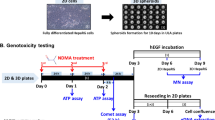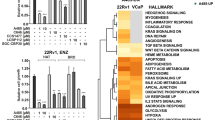Abstract
The Hedgehog signaling pathway is known to be involved in embryogenesis, tissue remodeling, and carcinogenesis. Because of its involvement in carcinogenesis, it seems an interesting target for cancer therapy. Indeed, Sonidegib, an approved inhibitor of the Hedgehog receptor Smoothened (Smo), is highly active against diverse carcinomas, but its use is also reported to be associated with several systemic side effects. Our former work in adult mice demonstrated hepatic Hedgehog signaling to play a key role in the insulin-like growth factor axis and lipid metabolism. The current work using mice with an embryonic and hepatocyte-specific Smo deletion describes an adverse impact of the hepatic Hedgehog pathway on female fertility. In female SAC-KO mice, we detected androgenization characterized by a 3.3-fold increase in testosterone at 12 weeks of age based on an impressive induction of steroidogenic gene expression in hepatocytes, but not in the classic steroidogenic organs (ovary and adrenal gland). Along with the elevated level of testosterone, the female SAC-KO mice showed infertility characterized by juvenile reproductive organs and acyclicity. The endocrine and reproductive alterations resembled polycystic ovarian syndrome and could be confirmed in a second mouse model with conditional deletion of Smo at 8 weeks of age after an extended period of 8 months. We conclude that the down-regulation of hepatic Hedgehog signaling leads to an impaired hormonal balance by the induction of steroidogenesis in the liver. These effects of Hedgehog signaling inhibition should be considered when using Hedgehog inhibitors as anti-cancer drugs.




Similar content being viewed by others
References
Aberger F, Ruiz I Altaba I (2014) Context-dependent signal integration by the GLI code: the oncogenic load, pathways, modifiers and implications for cancer therapy. Semin Cell Dev Biol 33:93–104. doi:10.1016/j.semcdb.2014.05.003
Almazroo OA, Miah MK, Venkataramanan R (2017) Drug metabolism in the liver. Clin Liver Dis 21(1):1–20. doi:10.1016/j.cld.2016.08.001
Ameer F, Scandiuzzi L, Hasnain S et al (2014) De novo lipogenesis in health and disease. Metab Clin Exp 63(7):895–902. doi:10.1016/j.metabol.2014.04.003
Baker J, Liu JP, Robertson EJ et al (1993) Role of insulin-like growth factors in embryonic and postnatal growth. Cell 75(1):73–82
Baker J, Hardy MP, Zhou J et al (1996) Effects of an Igf1 gene null mutation on mouse reproduction. Mol Endocrinol (Baltimore, Md.) 10(7):903–918. doi:10.1210/mend.10.7.8813730
Carmina E (2004) Diagnosis of polycystic ovary syndrome: from NIH criteria to ESHRE-ASRM guidelines. Minerva Ginecol 56(1):1–6
Christopher V, Al-Chalabi T, Richardson PD et al (2006) Pregnancy outcome after liver transplantation: a single-center experience of 71 pregnancies in 45 recipients. Liver Transpl 12(7):1138–1143. doi:10.1002/lt.20810
Finco I, LaPensee CR, Krill KT et al (2015) Hedgehog signaling and steroidogenesis. Annu Rev Physiol 77:105–129. doi:10.1146/annurev-physiol-061214-111754
Gebhardt R, Coffer PJ (2013) Hepatic autophagy is differentially regulated in periportal and pericentral zones—a general mechanism relevant for other tissues? CCS 11(1):21. doi:10.1186/1478-811X-11-21
Gebhardt R, Hengstler JG, Muller D et al (2003) New hepatocyte in vitro systems for drug metabolism: metabolic capacity and recommendations for application in basic research and drug development, standard operation procedures. Drug Metab Rev 35(2–3):145–213. doi:10.1081/DMR-120023684
Graham EJ, Selgrade JF (2017) A model of ovulatory regulation examining the effects of insulin-mediated testosterone production on ovulatory function. J Theor Biol 416:149–160. doi:10.1016/j.jtbi.2017.01.007
Grasfeder LL, Gaillard S, Hammes SR et al (2009) Fasting-induced hepatic production of DHEA is regulated by PGC-1alpha, ERRalpha, and HNF4alpha. Mol Endocrinol (Baltimore, Md.) 23(8):1171–1182. doi:10.1210/me.2009-0024
Grynberg M, Bidet M, Benard J et al (2016) Fertility preservation in Turner syndrome. Fertil Steril 105(1):13–19. doi:10.1016/j.fertnstert.2015.11.042
Han H-S, Kang G, Kim JS et al (2016) Regulation of glucose metabolism from a liver-centric perspective. Exp Mol Med 48:e218. doi:10.1038/emm.2015.122
Hovhannisyan A, Matz M, Gebhardt R (2009) From teratogens to potential therapeutics: natural inhibitors of the Hedgehog signaling network come of age. Planta Med 75(13):1371–1380. doi:10.1055/s-0029-1185979
Johänning J, Heinkele G, Precht JC et al (2015) Highly sensitive simultaneous quantification of estrogenic tamoxifen metabolites and steroid hormones by LC-MS/MS. Anal Bioanal Chem 407(24):7497–7502. doi:10.1007/s00216-015-8907-8
Kellendonk C, Opherk C, Anlag K et al (2000) Hepatocyte-specific expression of Cre recombinase. Genesis (New York, N.Y.: 2000) 26(2):151–153
Luciano AA, Lanzone A, Goverde AJ (2013) Management of female infertility from hormonal causes. Int J Gynaecol Obstetr 123(Suppl 2):S9–17. doi:10.1016/j.ijgo.2013.09.007
Luu-The V (2013) Assessment of steroidogenesis and steroidogenic enzyme functions. J Steroid Biochem Mol Biol 137:176–182. doi:10.1016/j.jsbmb.2013.05.017
Maiburg M, Repping S, Giltay J (2012) The genetic origin of Klinefelter syndrome and its effect on spermatogenesis. Fertil Steril 98(2):253–260. doi:10.1016/j.fertnstert.2012.06.019
Matz-Soja M, Hovhannisyan A, Gebhardt R (2013) Hedgehog signalling pathway in adult liver: a major new player in hepatocyte metabolism and zonation? Med Hypotheses 80(5):589–594. doi:10.1016/j.mehy.2013.01.032
Matz-Soja M, Aleithe S, Marbach E et al (2014) Hepatic Hedgehog signaling contributes to the regulation of IGF1 and IGFBP1 serum levels. CCS 12:11. doi:10.1186/1478-811X-12-11
Matz-Soja M, Rennert C, Schonefeld K et al (2016) Hedgehog signaling is a potent regulator of liver lipid metabolism and reveals a GLI-code associated with steatosis. eLife. doi:10.7554/eLife.13308
Migden MR, Guminski A, Gutzmer R et al (2015) Treatment with two different doses of sonidegib in patients with locally advanced or metastatic basal cell carcinoma (BOLT): a multicentre, randomised, double-blind phase 2 trial. Lancet Oncol 16(6):716–728. doi:10.1016/S1470-2045(15)70100-2
Monga SPS (2011) Role of Wnt/beta-catenin signaling in liver metabolism and cancer. Int J Biochem Cell Biol 43(7):1021–1029. doi:10.1016/j.biocel.2009.09.001
Nilsson ME, Vandenput L, Tivesten A et al (2015) Measurement of a comprehensive sex steroid profile in rodent serum by high-sensitive gas chromatography-tandem mass spectrometry. Endocrinology 156(7):2492–2502. doi:10.1210/en.2014-1890
Ombelet W, Cooke I, Dyer S et al (2008) Infertility and the provision of infertility medical services in developing countries. Human Reprod Update 14(6):605–621. doi:10.1093/humupd/dmn042
O’Shaughnessy PJ, Monteiro A, Bhattacharya S et al (2013) Steroidogenic enzyme expression in the human fetal liver and potential role in the endocrinology of pregnancy. Mol Hum Reprod 19(3):177–187. doi:10.1093/molehr/gas059
Pezzi V, Mathis JM, Rainey WE et al (2003) Profiling transcript levels for steroidogenic enzymes in fetal tissues. J Steroid Biochem Mol Biol 87(2–3):181–189
Robinson GW, Orr BA, Wu G et al (2015) Vismodegib exerts targeted efficacy against recurrent sonic Hedgehog-subgroup medulloblastoma: results from phase II pediatric brain tumor consortium studies PBTC-025B and PBTC-032. J Clin Oncol 33(24):2646–2654. doi:10.1200/JCO.2014.60.1591
Russell MC, Cowan RG, Harman RM et al (2007) The hedgehog signaling pathway in the mouse ovary. Biol Reprod 77(2):226–236. doi:10.1095/biolreprod.106.053629
Sandrock M, Schulz A, Merkwitz C et al (2009) Reduction in corpora lutea number in obese melanocortin-4-receptor-deficient mice. RB&E 7:24. doi:10.1186/1477-7827-7-24
Schmidt-Heck W, Matz-Soja M, Aleithe S et al (2015) Fuzzy modeling reveals a dynamic self-sustaining network of the GLI transcription factors controlling important metabolic regulators in adult mouse hepatocytes. Mol BioSyst 11(8):2190–2197. doi:10.1039/c5mb00129c
Sethi JK, Vidal-Puig A (2010) Wnt signalling and the control of cellular metabolism. Biochem J 427(1):1–17. doi:10.1042/BJ20091866
Somigliana E, Paffoni A, Busnelli A et al (2016) Age-related infertility and unexplained infertility: an intricate clinical dilemma. Hum Reprod (Oxford, England) 31(7):1390–1396. doi:10.1093/humrep/dew066
Spanel-Borowski K, Schafer I, Zimmermann S et al (2001) Increase in final stages of follicular atresia and premature decay of corpora lutea in Insl3-deficient mice. Mol Reprod Dev 58(3):281–286. doi:10.1002/1098-2795(200103)58:3<281:AID-MRD6>3.0.CO;2-0
Stecca B, Ruiz I Altaba I (2010) Context-dependent regulation of the GLI code in cancer by HEDGEHOG and non-HEDGEHOG signals. J Mol Cell Biol 2(2):84–95. doi:10.1093/jmcb/mjp052
Targher G, Rossini M, Lonardo A (2016) Evidence that non-alcoholic fatty liver disease and polycystic ovary syndrome are associated by necessity rather than chance: a novel hepato-ovarian axis? Endocrine 51(2):211–221. doi:10.1007/s12020-015-0640-8
Teperino R, Aberger F, Esterbauer H et al (2014) Canonical and non-canonical Hedgehog signalling and the control of metabolism. Semin Cell Dev Biol 33:81–92. doi:10.1016/j.semcdb.2014.05.007
Ueno T, Komatsu M (2017) Autophagy in the liver: functions in health and disease. Nature reviews. Gastroenterol Hepatol 14(3):170–184. doi:10.1038/nrgastro.2016.185
Villa A, Della Torre S, Stell A et al (2012) Tetradian oscillation of estrogen receptor alpha is necessary to prevent liver lipid deposition. Proc Natl Acad Sci USA 109(29):11806–11811. doi:10.1073/pnas.1205797109
Yakar S, Liu JL, Stannard B et al (1999) Normal growth and development in the absence of hepatic insulin-like growth factor I. Proc Natl Acad Sci USA 96(13):7324–7329
Acknowledgements
We thank PD Dr. Knut Krohn for Affymetrix microarray analysis. We cordially thank Kerstin Heise, Doris Mahn, Claudia Merkwitz and Markus König for excellent technical assistance. Further, we would like to thank Petra Hirrlinger, Petra Fink-Sterba, Sigrid Weisheit and Manuela Liebig from the Experimental Centre of the Faculty of Medicine (Leipzig University) for taking excellent care of the mice.
Author information
Authors and Affiliations
Corresponding author
Ethics declarations
Funding
This work was supported by the Federal Ministry of Education and Research (Germany) within the research network Systems Medicine of the Liver (LiSyM) [grant number 031L0054 and 031L0037] and the Virtual Liver Network (VLN) [grant number 0315735, 0315736, 0315755, and 0315775], the Deutsche Forschungsgemeinschaft (Bonn, Germany) [grant MU 1727/2-1, SCHR 1323/2-1], and the Robert Bosch Foundation (Stuttgart, Germany).
Conflict of interest
The authors declare that they have no conflict of interest.
Ethical approval
All procedures performed in studies involving animals were in accordance with the ethical standards of the institution or practice at which the studies were conducted. This article does not contain any studies with human participants performed by any of the authors.
Electronic supplementary material
Below is the link to the electronic supplementary material.
Rights and permissions
About this article
Cite this article
Rennert, C., Eplinius, F., Hofmann, U. et al. Conditional loss of hepatocellular Hedgehog signaling in female mice leads to the persistence of hepatic steroidogenesis, androgenization and infertility. Arch Toxicol 91, 3677–3687 (2017). https://doi.org/10.1007/s00204-017-1999-5
Received:
Accepted:
Published:
Issue Date:
DOI: https://doi.org/10.1007/s00204-017-1999-5




